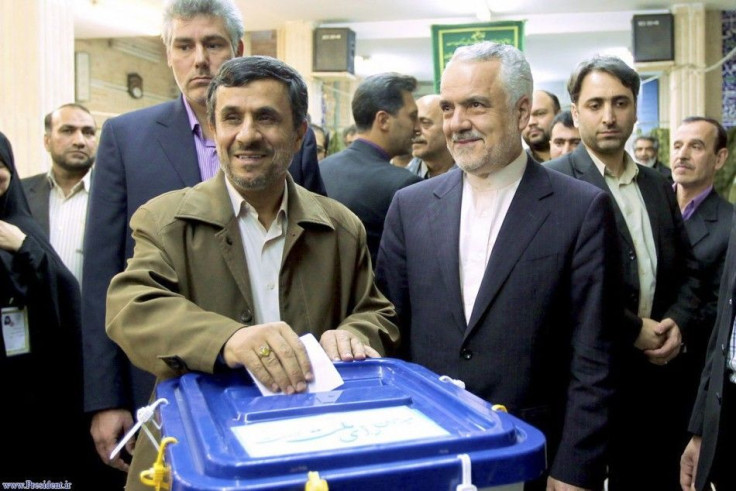As Iran’s Presidential Election Approaches, Iranian Journalists Live In Fear
Opinion

Throughout my career as a journalist in Iran, I practiced self-censorship while also experiencing the systematic censorship from the authorities. As a social reporter covering women’s issues, domestic abuse, etc., there were some off-limits topics -- children being born out of wedlock, for example. Iranian journalists are careful about what we write, not only out of fear for our personal safety but also for the sake of our colleagues; when a newspaper gets shut down, it isn’t just the journalists who find themselves out of work, it’s everyone from advertising to the subscription team. This is what I said in a 2005 interview with The New Yorker.
As Iran’s June presidential election approaches, Iranian authorities, as a precautionary measure, have intensified their crackdown on journalists. In the past week, three journalists involved in a 2009 anti-government protest against President Mahmoud Ahmadinejad winning a second term -- Masoud Bastani, Shiva Nazarahari and Bahman Ahmadi Amoui -- have had their parole canceled and have been sent back to prison.
Iran currently has 40 journalists sitting in prison, according to the Committee to Protect Journalists’ recent report, the second-highest number in the world behind Turkey; as of August 2012, Turkey has had roughly 76 Turkish journalists jailed.
In the biggest crackdown on media since the 2009 Green Movement, the government arrested 15 journalists in Iran, barging in on five reformist newspapers on Jan. 27. Naturally, fear overcame other journalists; rumors circulated that officials have a list of 100 journalists to arrest, reviving memories of the 2009 crackdown, when 100 journalists out of a list of 200 were arrested. One of those imprisoned journalists, Saba Azarpeik, was taken violently from her home, according to her mother. Another, Ali Dehghan, was arrested on his wedding day.
Some of these journalists are my friends, peers from my time working for Iranian reformist newspapers like Etemad Melli, where I worked before I left the country in 2006, or foreign media in Iran, like the BBC’s Persian service.
It might come as a surprise that American journalists who write about Iran also practice self-censorship. I interviewed four of them for a 2011 report published in Iran dar Jahan, or Iran in the World, a Persian magazine published in New York for Iranians all around the world. It was all too common for my interview requests to be declined or accepted only on condition of anonymity. For American journalists writing about Iran, a chief concern is the issuing of visas in order to enter the country, or keeping the press license to stay and continue coverage.
Iranian officials are aware of the power they have over journalists. And they continually exercise it. They have done this by changing their normal arrest routine. Typically, individual arrests were made at a journalist’s home. Now, officers barge into newspaper offices, knowing they'll find a number of opposition intellectuals.
The regime has changed its practice, making it more like an army maneuver, as a way to intimidate. And they are successful.
On Jan. 30, more than 200 Iranian journalists condemned these arrests in a statement saying: “We are concerned that the simultaneous arrest of a large number of journalists may be politically motivated rather than being intended to serve justice.”
Ahmad, a pseudonym for an Iranian activist who has been detained twice since 2009, said in an interview with The Guardian:
“My capacity to overlook daily incidents has diminished. The reality is that our society's development process is not one that will get somewhere quickly. We must use every opportunity, in any space that opens up for progress. These types of occasions are chances for resuscitation, for getting small creeks flowing again.”
And he is right. While the Iranian regime is quite capable of holding the fear factor over the heads of journalists, they can’t frighten all of them. This is why the Iranian regime fears journalists the most. This is why they go after them; because the regime can always take the platform away, but they can’t take away the opposition’s right to think, or belief that Iran can do much better than what it’s got.
Solmaz Sharif is a digital journalist and has published articles in Persian, Turkish and American media. With more than 13 years’ experience in journalism, she is founder of the first Iranian women’s sports magazine, Shirzanan, and works for CyberDissidents.org. Her work can be found at: www.solmazsharifdj.com
© Copyright IBTimes 2024. All rights reserved.











